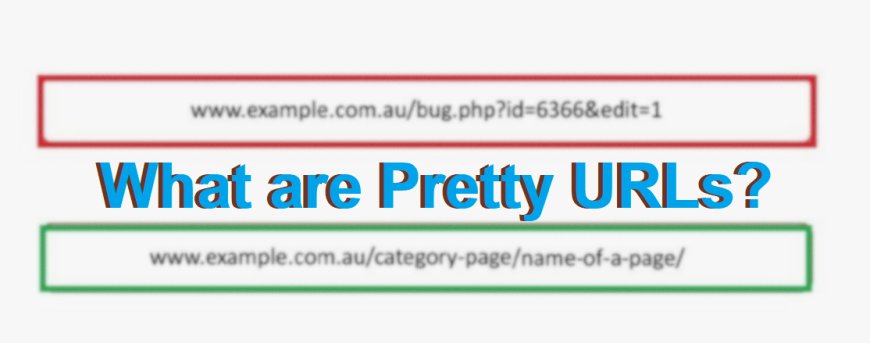Tackling URL Optimization Issues with the PrestaShop Pretty URL Module
Discover how the Pretty URL module resolves challenges in managing PrestaShop IDs and optimizing URLs.

URL optimization is a critical aspect of eCommerce success, especially when managing dynamic platforms like PrestaShop. One recurring issue in this landscape is dealing with PrestaShop IDs, which often appear in URLs by default, making them less user-friendly and SEO-friendly.
Having navigated these challenges myself, I understand how frustrating it can be to strike the right balance between functionality and optimization. Fortunately, the Pretty URL module simplifies this process, addressing many of the pain points related to PrestaShop IDs and general URL management. In this blog, we’ll explore common URL optimization hurdles and how this module effectively solves them.
1. The Problem with PrestaShop’s Default URLs
By default, PrestaShop generates URLs that include numerical IDs for products, categories, or pages. For example:
www.mystore.com/2-category/12-product
While functional, these URLs lack clarity and fail to provide any SEO value. They don’t indicate what the page is about, making it difficult for search engines and users to interpret their content.
How the Pretty URL Module Helps:
The Pretty URL module removes these PrestaShop IDs from your URLs, transforming them into cleaner, more descriptive links:
www.mystore.com/women-shoes
This enhancement not only improves readability but also increases your site’s chances of ranking higher in search engine results. Cleaner URLs are more likely to be clicked, which can boost traffic and conversions.
2. Addressing Duplicate Content Issues
Duplicate content is a frequent concern for online stores, especially when multiple URLs point to the same content. This can happen due to slight variations in URL structures, such as the inclusion or exclusion of PrestaShop IDs.
Duplicate URLs can confuse search engines, leading to indexing problems and diluted SEO rankings.
How the Pretty URL Module Helps:
The module eliminates duplicate content risks by standardizing your URL structure and implementing canonical tags where necessary. Additionally, it can redirect redundant URLs to the correct ones, ensuring that search engines recognize the primary version of your content.
3. Enhancing User Experience
Messy URLs cluttered with PrestaShop IDs don’t inspire confidence in customers. A clean, well-structured URL is much more inviting and signals professionalism.
Consider the difference:
- Default:
www.mystore.com/10-clothing/23-red-dress - Optimized:
www.mystore.com/red-dress
How the Pretty URL Module Helps:
The Pretty URL module improves user experience by creating intuitive URLs that are easy to remember and share. When customers see a descriptive URL, they’re more likely to trust your site and revisit it in the future.
4. Managing Redirects and Link Rot
When updating your site or modifying your product catalog, broken links or outdated URLs can occur. These issues not only frustrate users but can also harm your SEO.
How the Pretty URL Module Helps:
The module provides an efficient way to manage redirects. If you update a URL, the module automatically creates a 301 redirect to guide users and search engines to the new link. This ensures a seamless browsing experience and preserves your site’s SEO integrity.
5. Challenges in Multilingual Stores
Running a multilingual store comes with its own set of URL challenges. PrestaShop’s default structure might generate inconsistent URLs for different languages, making it harder to maintain a cohesive strategy across regions.
For example:
- English:
www.mystore.com/en/red-dress - French:
www.mystore.com/fr/robe-rouge
How the Pretty URL Module Helps:
The Pretty URL module supports multilingual URL customization, allowing you to create optimized URLs for each language. This feature ensures that users and search engines in different regions can easily navigate your store, boosting global SEO performance.
6. Overcoming Indexing Challenges
Search engines prioritize indexing sites with clean and consistent URL structures. However, default PrestaShop URLs with IDs and unnecessary parameters may slow down indexing and lower your search engine rankings.
How the Pretty URL Module Helps:
The module makes your URLs search engine-friendly by removing extraneous elements and focusing on descriptive keywords. As a result, your site becomes easier to crawl and index, helping you rank higher for relevant search queries.
7. Future-Proofing Your Store
As your store grows, so does the complexity of managing URLs. Without a proper strategy, your site can become cluttered with inconsistent and outdated URLs, leading to poor SEO performance.
How the Pretty URL Module Helps:
The module offers a scalable solution that evolves with your store. Whether you’re adding new products or restructuring categories, the Pretty URL module ensures that your URLs remain optimized and aligned with SEO best practices.
Conclusion
Navigating the world of URL optimization can be challenging, especially when dealing with PrestaShop IDs and other structural quirks. The Pretty URL module simplifies this process, transforming messy, ID-heavy URLs into clean, user-friendly links that are optimized for both search engines and customers.
If you’re tired of wrestling with URL-related issues, the Pretty URL module is a reliable solution. It improves your site’s SEO, enhances user experience, and makes managing your online store much more straightforward.
Take the step toward smarter URL optimization and see the difference it can make for your PrestaShop store.

 henryp550
henryp550